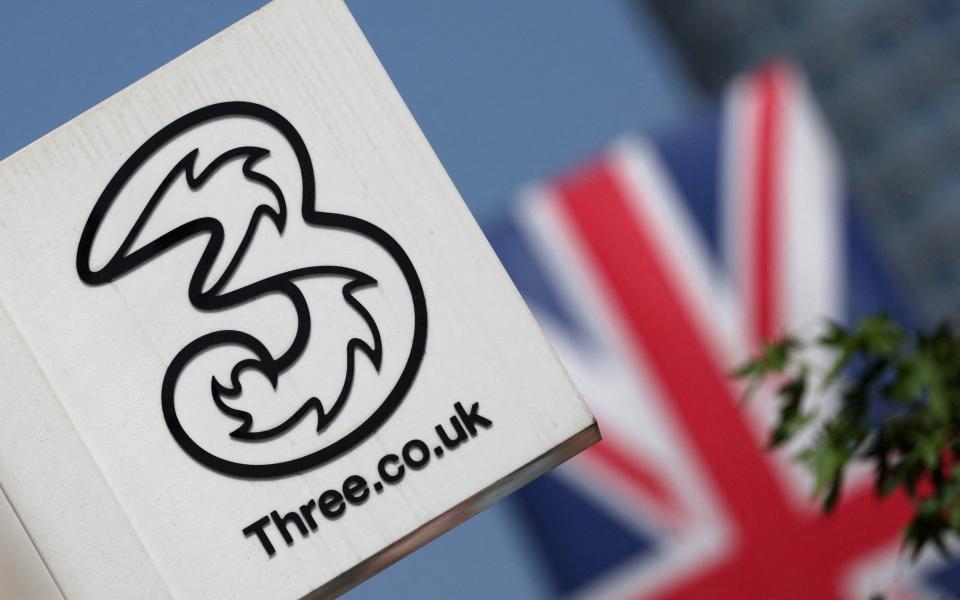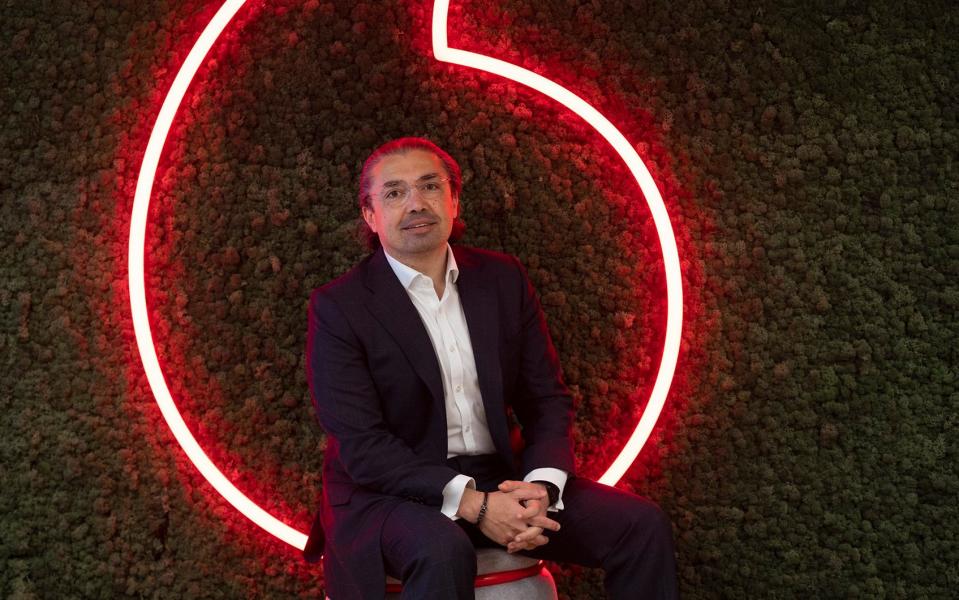Three’s merger with Vodafone risks driving up prices, warns regulator

The £15bn merger between Vodafone and Three risks pushing up prices for millions of mobile customers, regulators have warned.
The Competition and Markets Authority (CMA) is preparing to launch an in-depth investigation after highlighting concerns that the deal could lead to higher costs for consumers and affect investment in mobile networks.
The companies have five working days to respond with remedies to resolve the CMA’s concerns. If they cannot satisfy the watchdog then the deal will move to a phase two investigation, which is expected to last six months.
Vodafone and Three announced plans to merge last year in a tie-up that will create the UK’s largest mobile network with around 27 million customers.
It will also reduce the number of network operators in the country from four to three.
The CMA said its initial investigation had identified the risk that merging the two companies would reduce rivalry between mobile operators to win customers.
The watchdog is also concerned the deal could make it more difficult for so-called “virtual” mobile operators such as Sky Mobile and Lebara, which piggyback off larger players’ networks, to negotiate good deals for their customers as they will have fewer host networks to choose from.
Vodafone and Three have argued that the tie-up is needed to give them the scale to compete with larger rivals EE, which is owned by BT, and Virgin Media O2.
They have pledged to invest £11bn in their combined 5G network once the deal has completed.
Three yesterday revealed it had posted its first loss in 13 years in 2023 and warned its finances were unsustainable without the merger.
However, the CMA cast doubt on these claims, saying its initial review had found both companies were currently viable and competitive and would continue to invest in their networks regardless.

It said this needed further assessment, particularly given concerns that the merger would reduce overall incentive to invest.
Julie Bon, the CMA’s phase one decisionmaker for the case, said: “Millions of people in the UK depend on effective competition in the mobile market in order to access the best deals for them.
“Whilst Vodafone and Three have made a number of claims about how their deal is good for competition and investment, the CMA has not seen sufficient evidence to date to back these claims.
“Our initial assessment of this deal has identified concerns which could lead to higher prices for customers and lower investment in UK mobile networks. These warrant an in-depth investigation unless Vodafone and Three can come forward with solutions.”
Vodafone and Three said the findings were the expected next step in the regulatory process and remained confident the deal would bring benefits for consumers.

Ahmed Essam, Vodafone’s UK chief executive, said: “Having reached this important milestone, we look forward to working with the independent panel on the Phase 2 process.
“By merging our two companies, we will be able to invest £11bn to help the UK realise its ambitions to be a world leader in next-generation 5G technology, and increase competition across the industry.
“This transaction will create an operator with the scale required to take on BT/EE and VMO2, give MVNOs greater choice in the wholesale market and is in the wider interests of customers, competition and the country.”.
Robert Finnegan, chief executive of Three, said: “The current market structure is holding the UK back, which is not good for customers or competition.
“By creating a third player with the necessary scale to invest, the combination of our two companies will deliver one of Europe’s most advanced networks and move the UK into the digital fast lane, benefiting customers from day one.”

 Yahoo Finance
Yahoo Finance